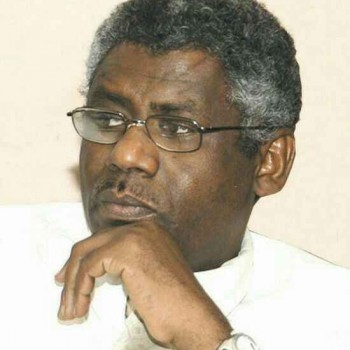Weaving New External Alliances (1-2)

By: Adil El Baz
As I see.
1
The recent Sudanese diplomatic movements reveal new directions for foreign policy in Sudan, the features of which are not yet complete, but they send many signals that indicate, through their tracking, that Sudan is on the verge of a major turning point in its foreign relations. Now, why is Sudan now looking for alliances outside its vital geographic space? The positions of the countries of the Arab region regarding the war that broke out in Sudan revealed that it does not enjoy any real support from its Arab brothers, as the positions of the Arab countries oscillated between absolute hostility and support for the rebel movement against the authority. The Sudanese state ranged from silence and ignoring the conflict raging in Sudan to desperate mediation attempts that did not provide any solution to the war, which has almost completed its first year.
2
These positions are viewed by the Sudanese with some disappointment, as they expected the brothers to stand with the Sudanese army, which has always presented itself on the front lines to defend Arab issues since the October 1973 war to the Yemen war. Sudanese soldiers are still stationed on the borders of two Arab countries.
This Arab position was accompanied by more strange positions by African countries and organizations alike. At the beginning of the war, Ethiopia and Kenya took a hostile position towards Sudan, clearly biased towards the rebel movement led by the Rapid Support Forces (RSF). They even moved their position to favor the regional organizations (IGAD/African Union) in favor of the rebellion’s approaches and vision. To stop the war based on their conditions. In addition, the positions of some neighboring countries began to be confusing, as Libya and Chad, Sudan’s neighbors on its western borders, opened their lands to establish camps for the rebel RSF and assumed all types of support, from weapons to food, to establishing training camps and hospitals to treat fighters from the rebel movement.
3
This position led Sudan to freeze its membership in IGAD, and to move away from the initiatives of the African Union, especially since Sudan’s membership was frozen by a decision of the African Union two years ago, which led the Sudanese government to announce that it did not recognize any negotiating platform other than the Jeddah platform. Based on these positions, Africa has fallen out of the circle of influence in the course of events, as it is no longer an honest mediator desired by the Sudanese party.
In the face of these Arab and African positions, which Sudan considered advocating and supportive of the rebellion, Sudan began the journey of searching for reliable allies that could be relied upon to support its foreign policy and war efforts.
4
On the Arab side, Sudan chose to expand its relations with two countries outside the African region. It chose Qatar, whose relationship with Sudan dates back many years and has positive interventions in Sudanese affairs, especially in Darfur affairs, when Qatar hosted long and arduous negotiations for three years that culminated in what was known as the Doha Agreement in the year. Qatar is also far from the intersection of conflicts in the region, and its relationship with all the East and West African countries that border Sudan is distinct. Qatar’s diplomacy is respected by everyone on the continent, which qualifies it to play an important role in the Sudanese crisis, especially since it is trusted by all parties.
In addition to this desired and required role now, Sudan desires another economic role for Qatar in light of the circumstances it is experiencing, including the imbalance of its payments and the cessation of 90% of state revenues, in addition to the burdens of the ongoing war, which has no end in sight. Qatar can support Sudan through smart partnerships in The field of gold export is the main resource that Sudan now depends on in running the state and supporting the war effort. The State of Qatar can also grant Sudan bank deposits that help stabilize the constantly deteriorating exchange rate as a result of the repercussions of the war. Sudan also aims to benefit from Qatar’s extended relations with Turkey and Iran to open New paths in relations with these two countries.
# This article was published on the TRT Arabic website, and the writer made some amendments to it and is republishing it now.



